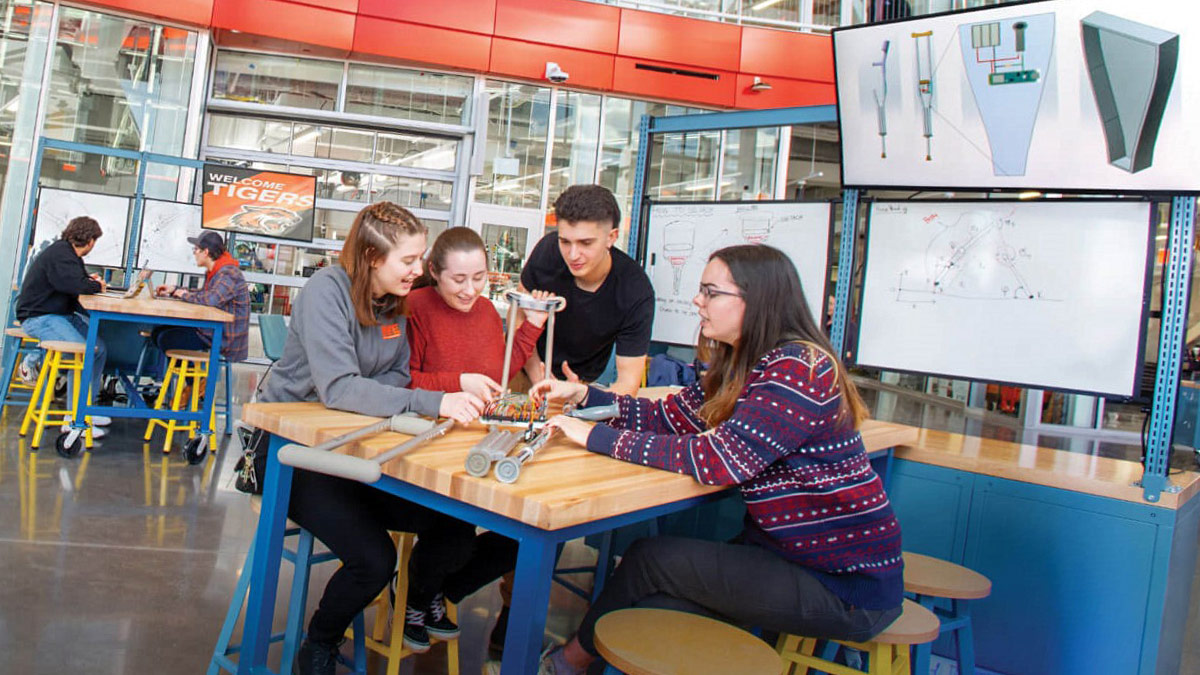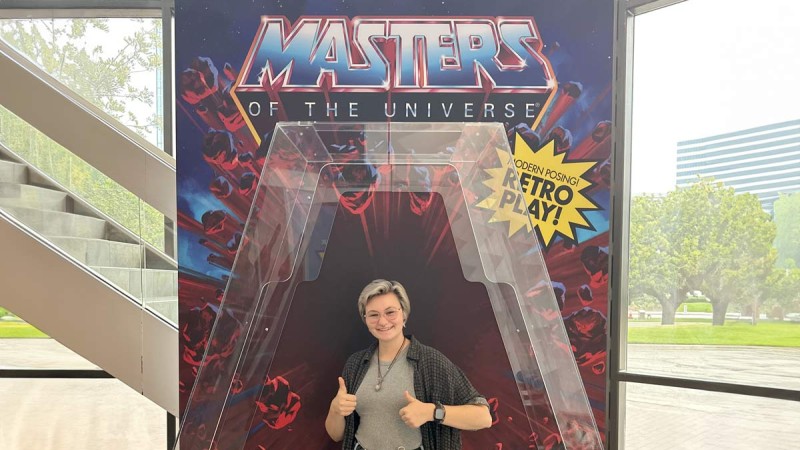Engineering Technology Exploration

Engineering Technology Exploration
- RIT /
- Rochester Institute of Technology /
- Academics /
- Engineering Technology Exploration
Explore majors in engineering tech, sustainability, and more—without delaying graduation from RIT’s College of Engineering Technology.
Overview for Engineering Technology Exploration
Hands-on approach to exploring which major best suits your career goals.
Spend up to one year (two semesters) exploring majors in the College of Engineering Technology, and graduate on time.
Apply courses completed in the exploration program to the major you choose.
Engineering technology exploration is an exciting opportunity for you to explore all the College of Engineering Technology’s academic majors to determine which one best meets your career aspirations. And, you have the freedom to explore early in your college career, so you can determine your interests before committing to a major.
What is Exploration?
The tech exploration program is designed to help you learn more about all the majors in the College of Engineering Technology, the courses you will take, and the career paths within each program. You can spend up to two semesters exploring and learning before you decide on a major. A key benefit of tech exploration is the freedom to identify your interests while remaining on track for graduation.
Is engineering technology exploration right for you? It’s a great fit if you are:
- Inspired to tackle real-world problems facing society
- Passionate about engineering, science, technology, robotics, mechatronics, or manufacturing
- Seeking ways to help make contributions toward saving the environment
- Interested in exploring ways to keep employees safe, healthy, and productive on the job
- Looking for ways to combine your interests in technology, packaging science, and print and graphic media.
- Interested in continuing your career exploration before declaring a major
Exploring Majors
Throughout your time in the engineering technology program, you will learn about each of the college’s nine majors while you complete foundational courses that apply to all engineering technology degrees in the college. This enables you to explore your options while working toward your degree.
You'll gain an in-depth understanding of each major through hands-on labs and projects. While developing foundational principles of engineering and applied science, you will learn about courses and career paths associated with each of our majors. This approach will help you identify which academic areas are most aligned with your career aspirations.
Which engineering technology degree will you explore?
- Civil Engineering Technology BS
- Computer Engineering Technology BS
- Electrical Engineering Technology BS
- Environmental Sustainability, Health and Safety BS
- Mechanical Engineering Technology BS
- Mechatronics Engineering Technology BS
- Packaging Science BS
- Print and Graphic Media Technology BSs
- Robotics and Manufacturing Engineering Technology BS
What is Engineering Technology?
Engineering technology majors focus on using scientific and engineering principles to implement new technologies. Those who choose a degree in engineering technology are typically interested in the application of innovative ideas and technologies to solve real-world problems.
What’s the Difference Between Engineering and Engineering Technology?
It’s a question we’re asked all the time. While there are subtle differences in the course work between the two, choosing the right major in engineering or engineering technology is more about identifying what you like to do and how you like to do it.
Become Part of a Supportive and Encouraging Environment
In the College of Engineering Technology, you’ll be surrounded by people who want to see you do well, who will offer you encouragement, moral support, and mentoring. You will feel challenged and grow from the exhilarating ‘a-ha’ moments while being involved in a community that is rooting for you and your success, just as you root for them and their success.
-
Join Us for Accepted Student Open House
Visit campus on March 28 or April 11 to meet faculty, tour campus, and ask your questions.
Featured Work and Profiles
-
Beyond the Box: Discovering Packaging Science and Landing Co-ops with Kraft Heinz and Mattel
Kailey Gayton Initially undecided on a major, Kailey started in the CET's Exploration program and discovered Packaging Science. The unique blend of creativity and engineering ultimately led to co-ops with globally...
Read More about Beyond the Box: Discovering Packaging Science and Landing Co-ops with Kraft Heinz and Mattel -
Students Revolutionize AI in Education
Kyle Scher Discover how Kyle and three classmates built ProGenie, an AI tool designed to enhance student engagement and learning at RIT's College of Engineering Technology, set to roll out in the spring.
Read More about Students Revolutionize AI in Education
Curriculum for 2025-2026 for Engineering Technology Exploration
Current Students: See Curriculum Requirements
Admissions and Financial Aid
First-Year Admission
A strong performance in a college preparatory program is expected. This includes:
- 4 years of English
- 3 years of social studies and/or history
- 3 years of math is required and must include algebra, geometry, and algebra 2/trigonometry. Pre-calculus is preferred.
- 2-3 years of science. Chemistry or physics is required and biology is recommended.
- Technology electives are preferred.
Financial Aid and Scholarships
100% of all incoming first-year and transfer students receive aid.
RIT’s personalized and comprehensive financial aid program includes scholarships, grants, loans, and campus employment programs. When all these are put to work, your actual cost may be much lower than the published estimated cost of attendance.
Learn more about financial aid and scholarships
Accreditation
Resources
Access Resources for students including academic advisors, student clubs and organizations, documents, technical information and support, and software help.
Contact
- Mike Eastman
- Senior Associate Dean for Academic Affairs
- Dean’s Office
- College of Engineering Technology
- 585‑475‑7787
- mgeiee@rit.edu













